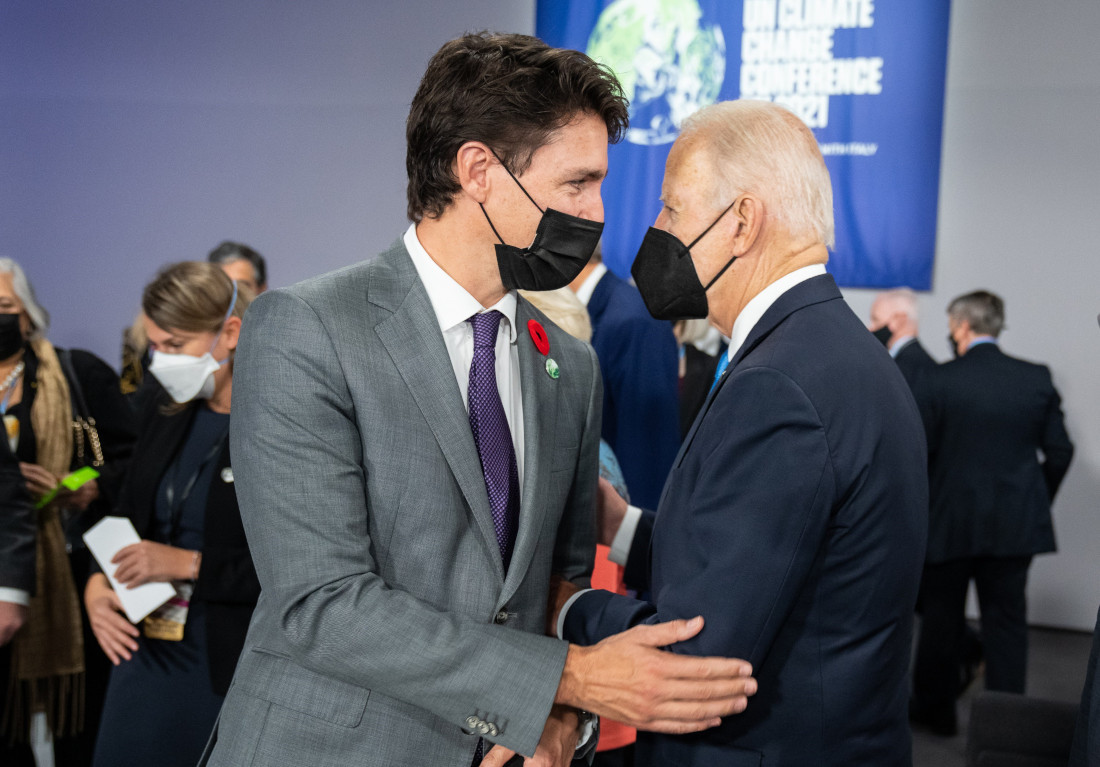Restrictions, uncertainty and politicking
Canada-US relations in the Biden era
Exactly one year ago, on Jan. 20, 2021, Joe Biden was inaugurated as the United States’ 46th president, succeeding Donald Trump. The 45th president’s tenure was a tumultuous time in American politics, which culminated with the Jan. 6 insurrection in Washington, DC and Trump’s second impeachment for “incitement of insurrection.”
Canadians’ overwhelming support of Biden over Trump led many to believe the somewhat strained Canada-US relations over the past few years might be over. However, the continued presence of political extremism in the US, the ever-present COVID-19 pandemic and Biden’s continuation of some of Trump’s policies have complicated the potential détente.
Dr. Kawser Ahmed, adjunct professor of political science at the University of Winnipeg, says “many of the foreign-policy decisions have not changed during the first year of the Biden administration.”
“That includes China’s policy, trade and tariffs (particularly electric-vehicle production, which will not receive any subsidy in the USA),” he says in an email to The Uniter.
“We ought not to forget that Biden’s first year (since elected) witnessed two monumental US defeats (one at home, the Jan. 6 insurrection, and one abroad, the Afghanistan withdrawal after 20 years),” Ahmed says.
He adds that the rise of far-right politics in the US has helped inspire extremist acts and groups in Canada.
“Never in the history of Manitoba has someone driven a truck through the Legislative building stairs in the past,” he says, referring to the event that occurred in July 2021.
For the coming year, Ahmed believes shifts in Canada-US relations will depend on the American midterm election, scheduled to take place on Nov. 8, 2022.
“I am waiting to see how Canada steers its foreign-policy decisions without US hegemony and takes independent and well-informed measures about China,” he says. Ahmed adds that he does not expect any significant pro-Canada policy changes during the Biden presidency.
One complicating factor is the interdependence of the two economies, particularly in border provinces and states.
Charley Johnson, president and CEO of the Fargo-Moorhead Convention & Visitors Bureau, says North Dakota, a popular destination for Manitobans, has suffered due to a lack of visitors during the pandemic.
“Border crossings at Pembina fell off to virtually nothing in the wake of the shutdown and still amount to only a trickle compared with non-pandemic years,” he says.
“The return of Canadian traffic is complicated by the requirement of a negative PCR test for re-entry to Canada, the processing time of which is not conducive for a quick weekend getaway to Fargo or Grand Forks,” Johnson notes.
“I don’t realistically expect that to be relaxed until the Omicron surge abates, so we’re in wait-and-see mode.”
Johnson does, however, say he is cautiously optimistic about the coming year.
“I do believe there is pent-up demand among Manitobans who want to come south, just as there has been for Americans to visit Canada, so I hope things ease up again soon,” he says.
Published in Volume 76, Number 14 of The Uniter (January 20, 2022)








